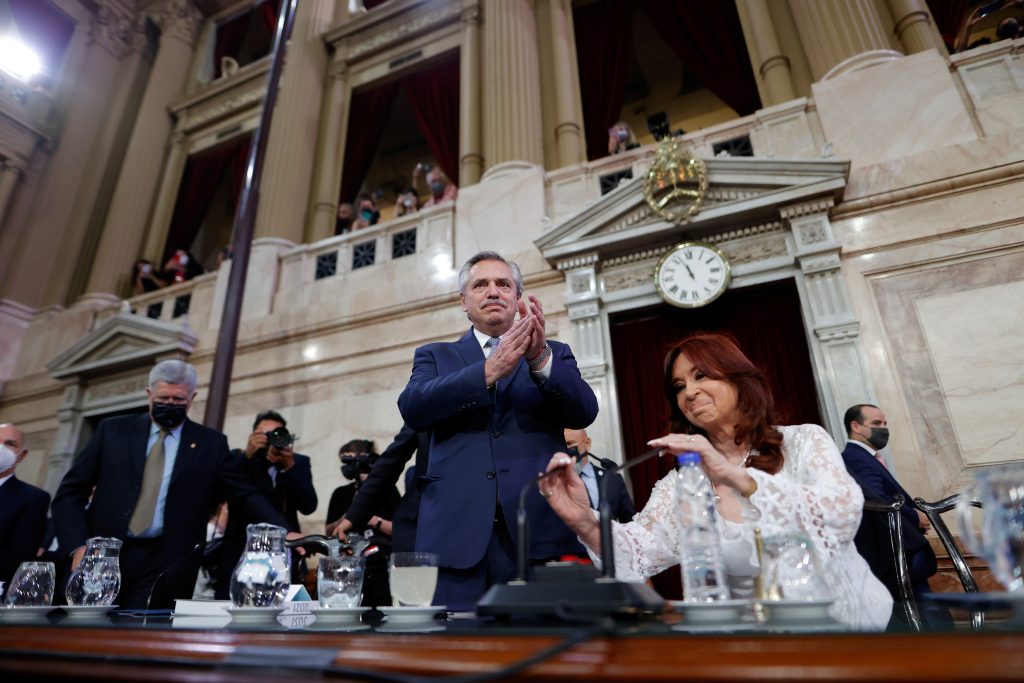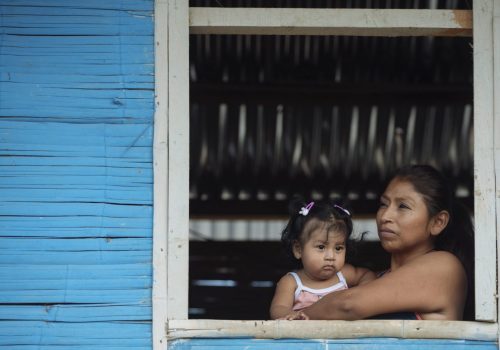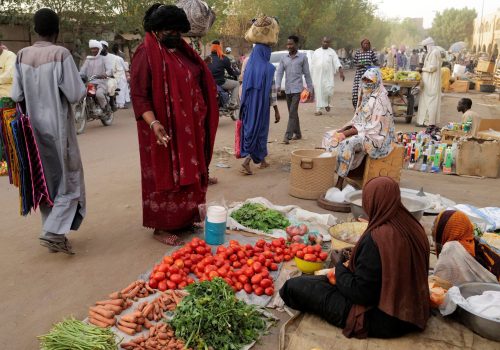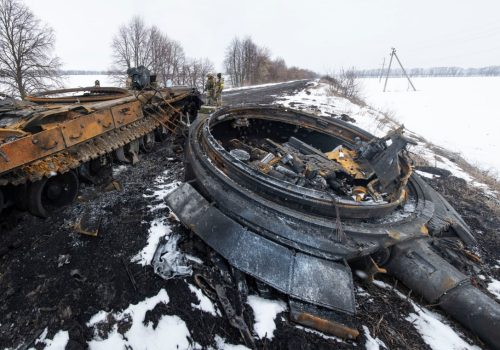In the end, there was never a serious doubt about whether the International Monetary Fund’s (IMF’s) Executive Board would approve another loan to Argentina to help its troubled economy. Even without the turmoil caused by the Russian invasion of Ukraine, the odds were stacked heavily in favor of a successor arrangement to the ill-fated 2018 program, which left the South American country close to forty billion dollars in debt to the world’s largest multilateral lender. However, the IMF’s decision this time puts geopolitical considerations over its own economic principles—setting a dangerous precedent that the fund might come to rue.
The 2018 loan was negotiated when I was heading the department responsible for the IMF’s overall strategy and policies. Since then, the fund’s staff has produced a hard-hitting assessment of the factors that contributed to the loan’s failure. With Argentina unable to meet its debt-service obligations this year, the board had to decide between providing the country with fresh funds or accepting its largest borrower going into default.
The board’s reasons for choosing the former were many. First, a default on the IMF loan would have brought suffering for ordinary citizens, if market access for Argentine borrowers was sharply curtailed. Second, it would have left Argentina unable to borrow from the fund again until its arrears were cleared with bridge loans from friendly countries. Third, it could have fueled already strong anti-IMF sentiment in the country, undermining chances to resume negotiations at a later stage. And fourth, it would have hit the IMF’s financial reputation, even though its balance sheet could absorb an arrears resolution process over a few years.
With the world economy suffering from a multitude of shocks since 2020, the geopolitical rationale for tiding Argentina over its repayment hump has grown even stronger. Financial exposures to Argentina have been reduced in recent years, but global debt markets are strained and more vulnerable than usual. A possible debt default by Russia still hangs in the air and higher interest rates threaten borrowers, with global credit at an all-time peak. Inflation and commodity price shocks are likely to reverberate through global markets once lenders fail to get repaid. Against this backdrop, deteriorating economic sentiment in Latin America—a relatively stable region in recent years—could create yet another front that nervous investors would watch anxiously.
Moreover, the world should not have to focus on a crisis in Argentina when every effort must be centered on helping the Global South withstand an impending food crisis, caused by the projected drop in grain exports from Ukraine. Buenos Aires has also played its geopolitical cards smartly in recent weeks. While finalizing a staff-level agreement with the IMF, President Alberto Fernández joined China’s Belt and Road Initiative during his visit to Beijing (with a stop in Moscow), sending a strong signal to Washington and its Western allies.
However, the terms of the fresh loan could create the impression that IMF money is now freely available to cure the financial ills of any country demanding it loudly enough. Unlike the countries receiving emergency financing at the outset of the COVID-19 crisis, Argentina’s problems are largely homemade. Although a member of the Group of Twenty (G20), its economy has been badly mismanaged over several decades. Previous governments were either unwilling or lacked bipartisan support to undertake critical reforms to lift the country onto a sustainable growth trajectory.
With the just-approved loan, Argentina missed an opportunity to signal that it is willing to deviate from the past. Compared to an average IMF program, Argentina’s loan has come with hardly any strings attached, including a slow fiscal adjustment path that will surely be discarded by policymakers once campaigning for the next election begins in a few months. Although IMF directors emphasized the need for “gradually removing economic distortions and providing a more predictable regulatory framework,” the government refused to consider productivity-enhancing reforms over the thirty-month loan period, favoring “a model of greater state involvement and protection,” according to the IMF staff report.
As is often the case with IMF programs, growth and inflation projections look overly optimistic. Yet, IMF staff concede that the test for debt sustainability is not met with high probability, as would be required in cases that exceed normal lending limits. The program can go forward on a technicality as there is sufficient private-sector debt that Argentina has “the option to implement a more definitive debt restructuring,” according to IMF policy, in case downside risks jeopardize its capacity to repay the IMF after the end of the program. However, in these circumstances and after two major haircuts on private bond holders during the past twenty years, obtaining market financing at affordable rates will remain an uphill battle for years to come.
In effect, the program seems to be little more than a refinancing of the previous IMF loan that the Fernández administration has loudly demanded, but that has long been a taboo for the fund’s shareholders. It is not unusual for successor arrangements to follow IMF programs. However, these have traditionally served to complete unfinished reforms, not to perpetuate the fund’s own exposures.
With its approach in Argentina, the IMF has now compromised its capacity to deal with future crises. The fund’s leverage to convince hesitant governments to undertake necessary reforms will be diminished by this program. Private-sector creditors will find it even harder to accept debt write-downs if the largest multilateral lender keeps itself whole without increasing a borrower’s ability to fulfill its obligations to other lenders. The IMF’s preferred creditor status may come under scrutiny, and solving the growing problem of excessive sovereign debt around the world will become more complex as a result.
The decision is partly the responsibility of the IMF’s leaders who seem to have acquiesced to intense pressure, believing that the program outcome this time will be different. Even so, political ownership even for this minimalist program is badly missing in Buenos Aires. The ratification bill faced opposition even among the ruling coalition, and lawmakers weakened language on Argentina’s commitments to ensure passage in the lower house. It would have required strong support from key IMF shareholders to convince Argentina’s body politic of a different approach.
It is still not too late for the IMF’s board to regain the initiative. During the coming reviews, a determined Group of Seven (G7) could press for a modicum of reforms to improve the program’s chances of success. This is not only about Argentina, but also about fixing a bad precedent before the world faces a fresh economic downturn that will require the IMF to be at the top of its game. The fund’s major shareholders would be well advised to exercise their geopolitical unity when it comes to stiffening the backbone of the world’s lender of last resort.
Martin Mühleisen served as the IMF’s director for strategy, policy, and review from 2017 to 2020.
Further reading
Wed, Oct 13, 2021
The IMF needs to prepare for the post-COVID world
New Atlanticist By
The institution has shifted its focus toward climate policy and development finance in the last two years, but it should not stray from its global stability mandate.
Mon, Feb 14, 2022
The G20’s unfinished business: Don’t let debt do us part
New Atlanticist By Hung Tran
Simply put, sovereign debt crises could stall the global economic recovery.
Tue, Mar 8, 2022
Ukraine urgently needs a multi-billion dollar international fund to survive
UkraineAlert By
Ukraine urgently needs international financial support to prevent an economic collapse as a result of Vladimir Putin's invasion and in order to fund the future rebuilding of the country's devastated towns and cities.
Image: Argentina's President Alberto Fernandez gestures next to Vice President Cristina Fernandez de Kirchner at the opening session of the legislative term for 2022 at the National Congress in Buenos Aires, Argentina on March 1, 2022. Photo by Juan Ignacio Roncoroni/Pool via Reuters.



